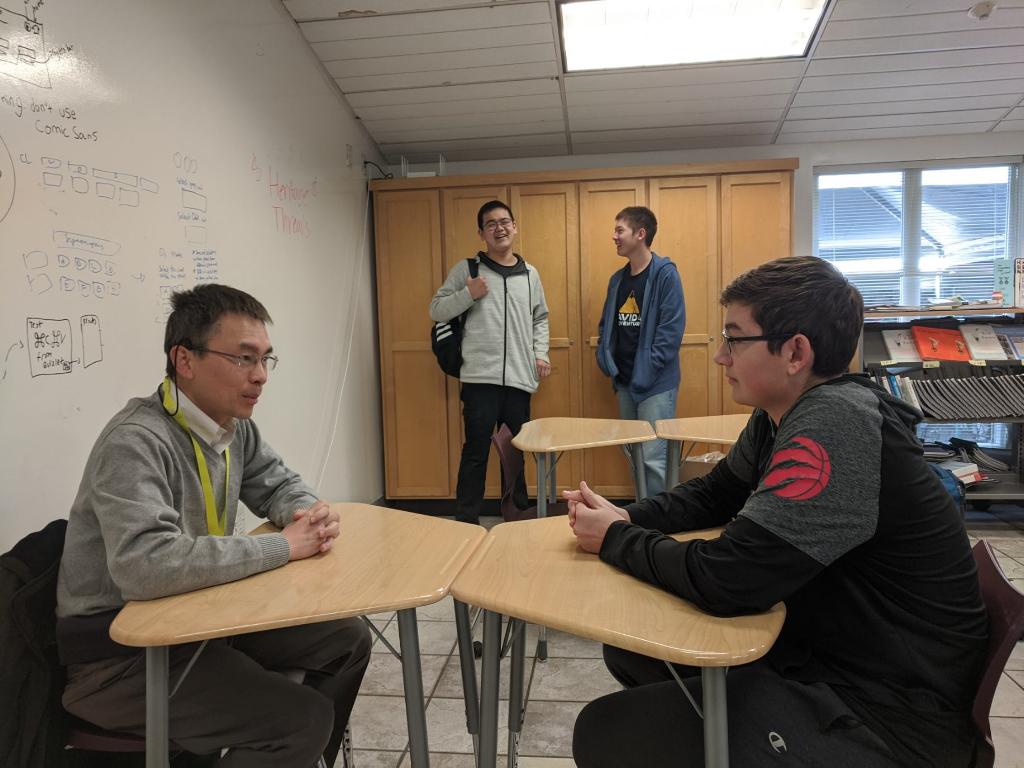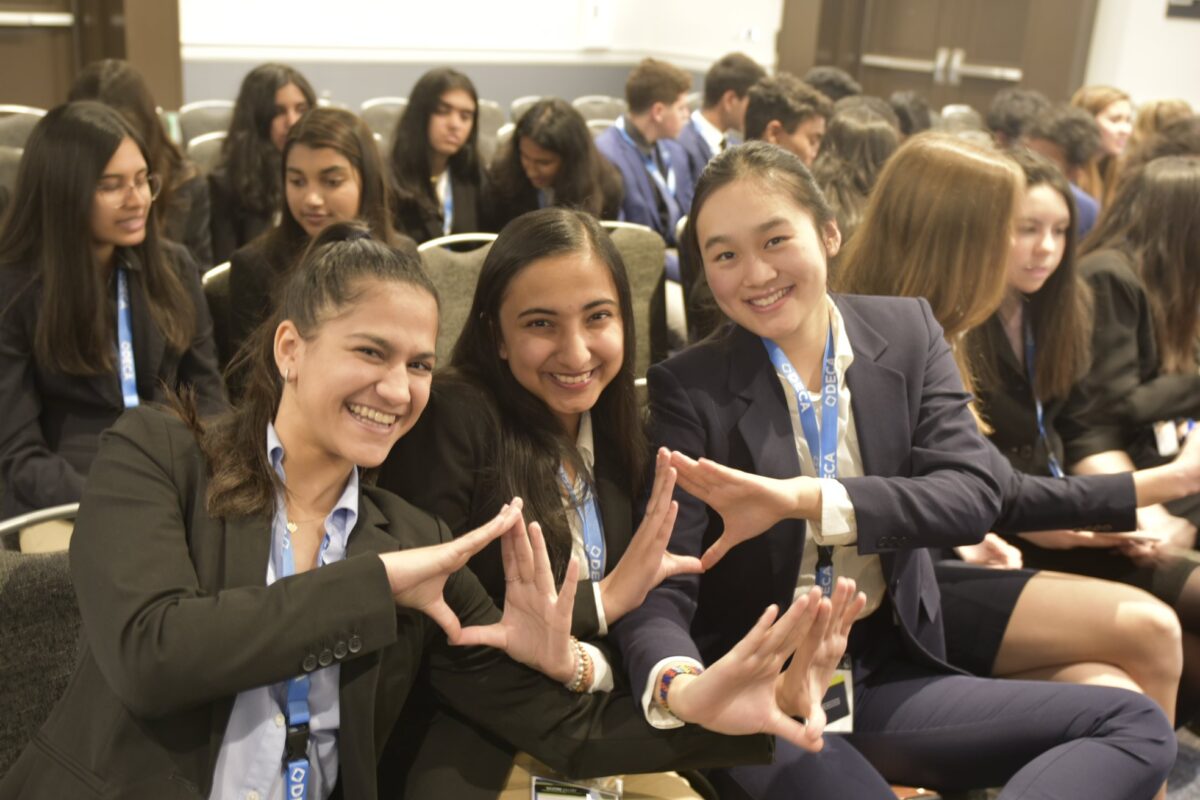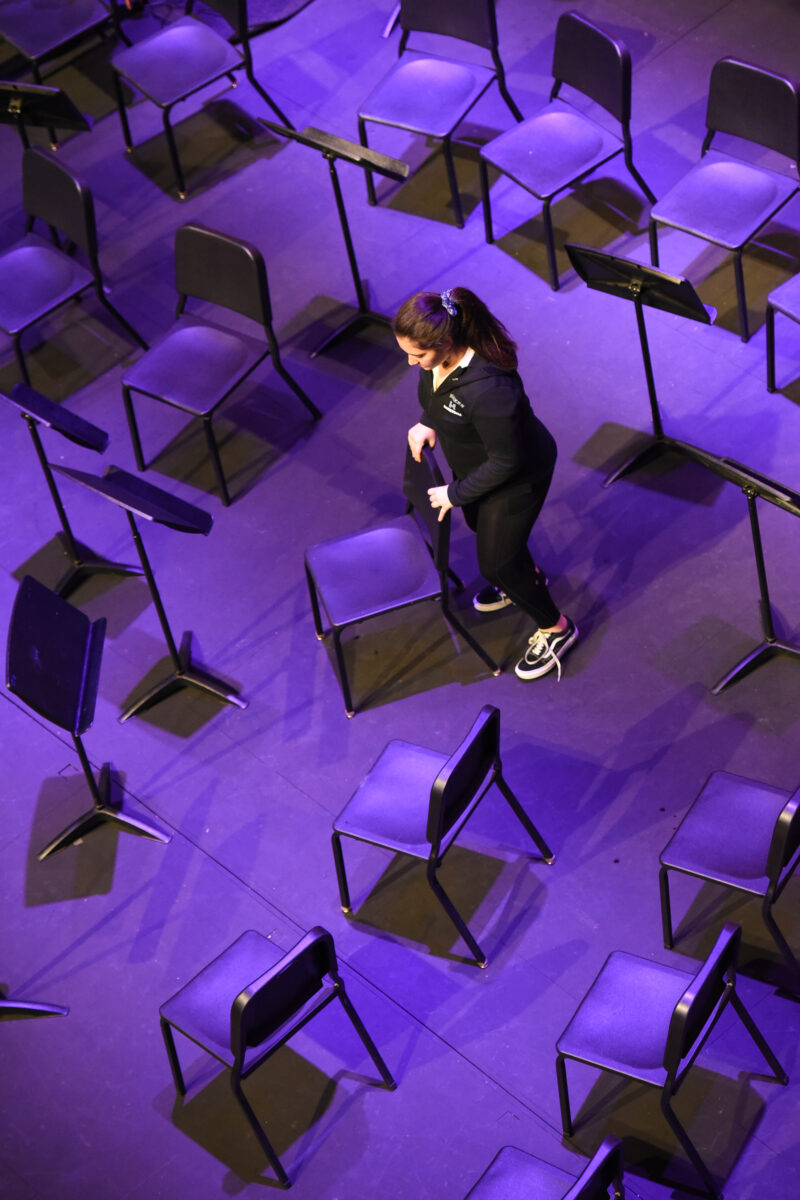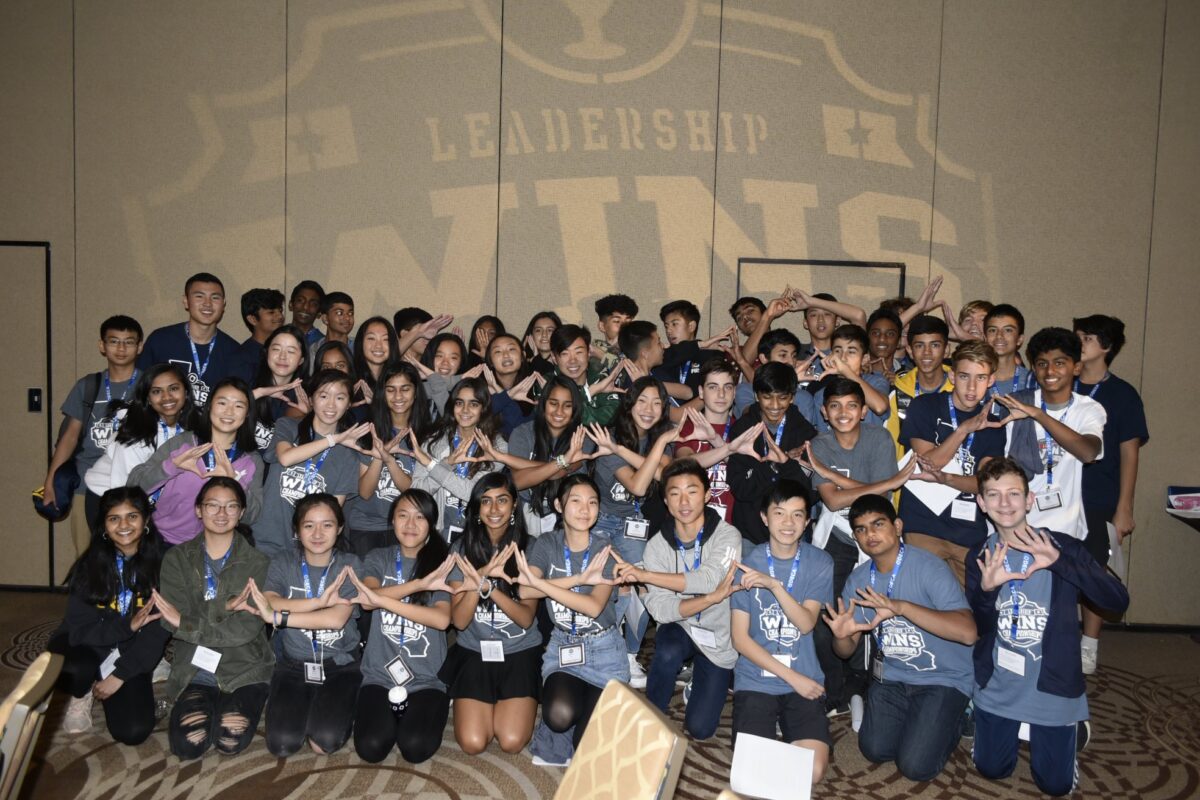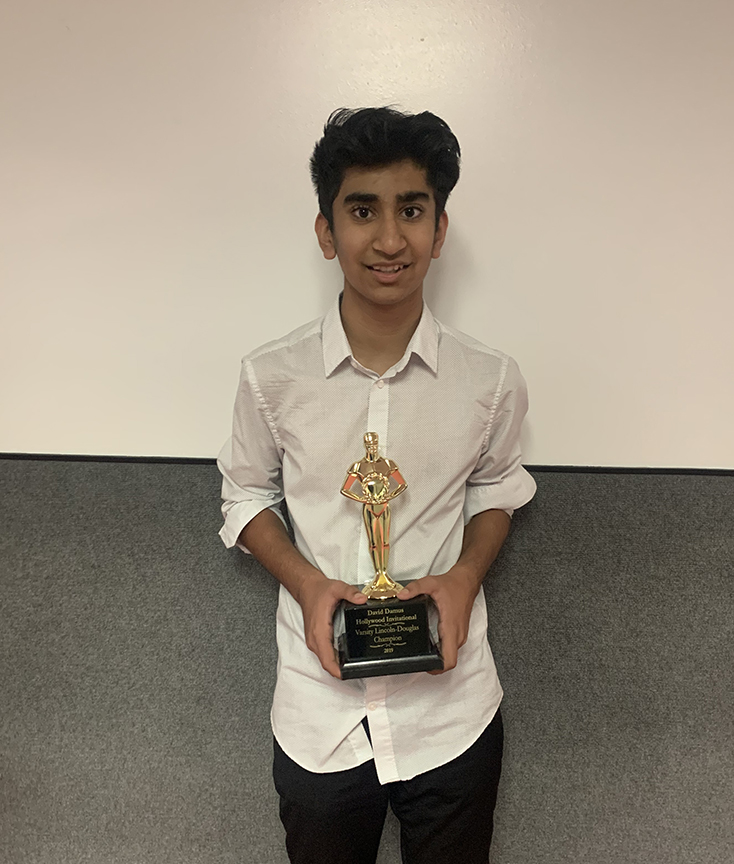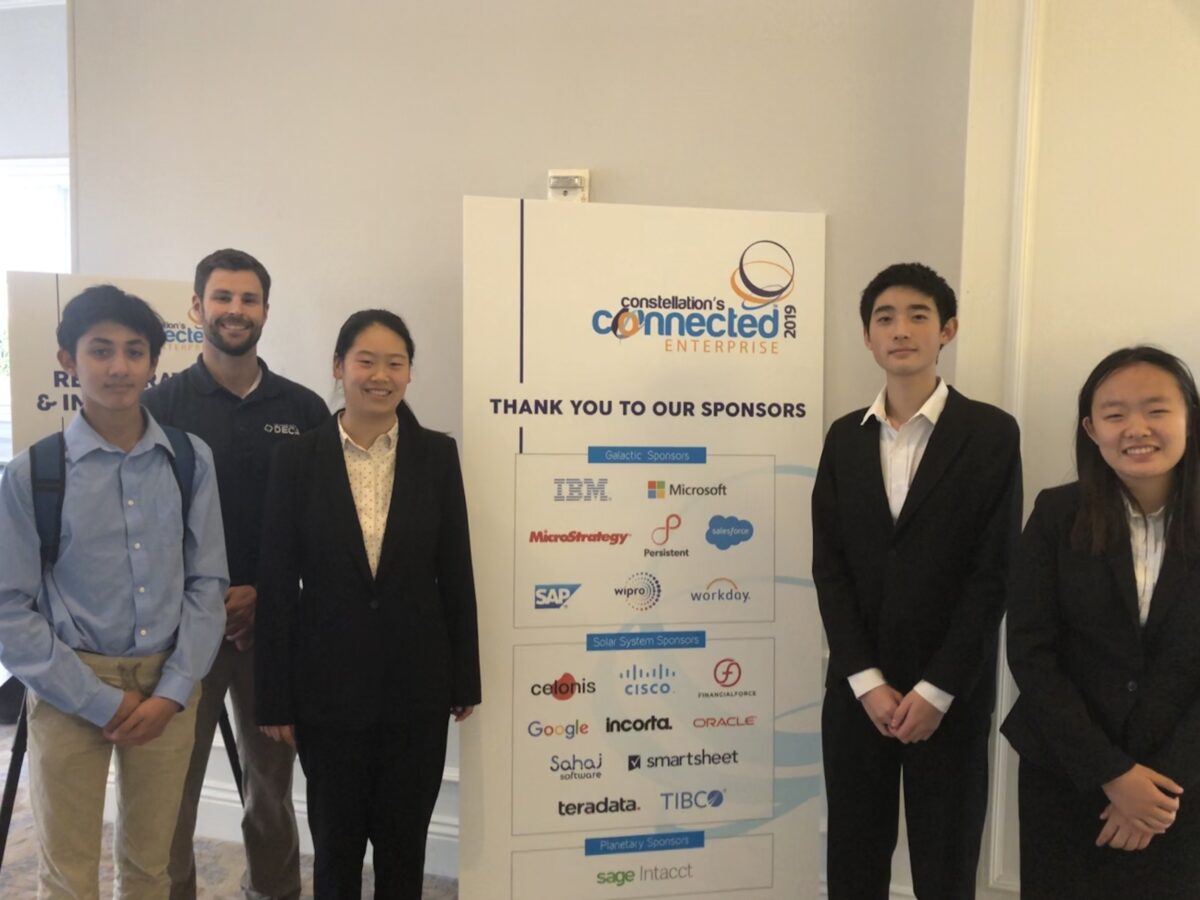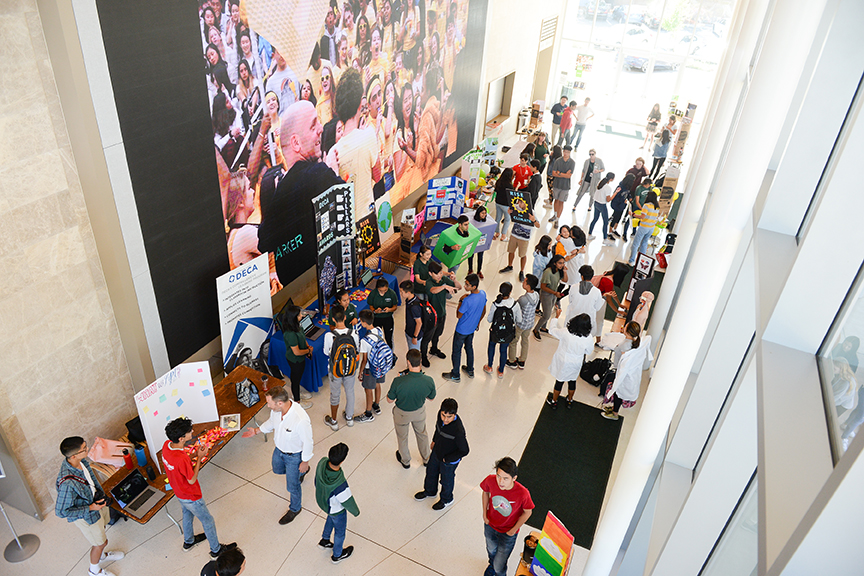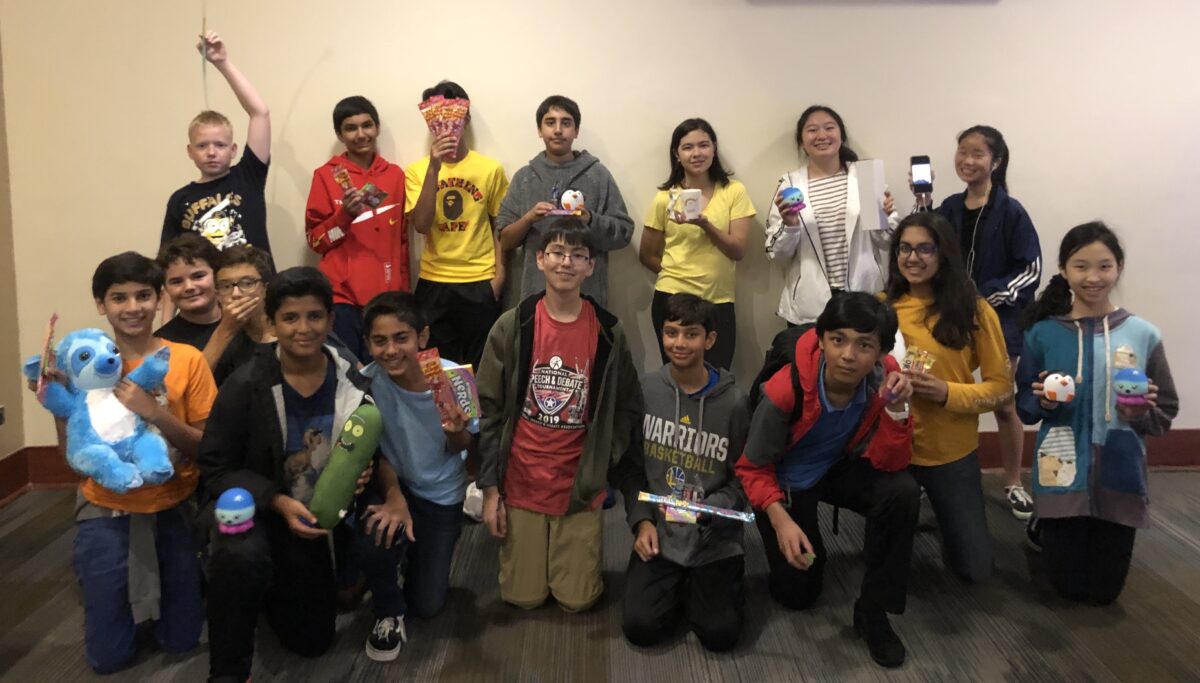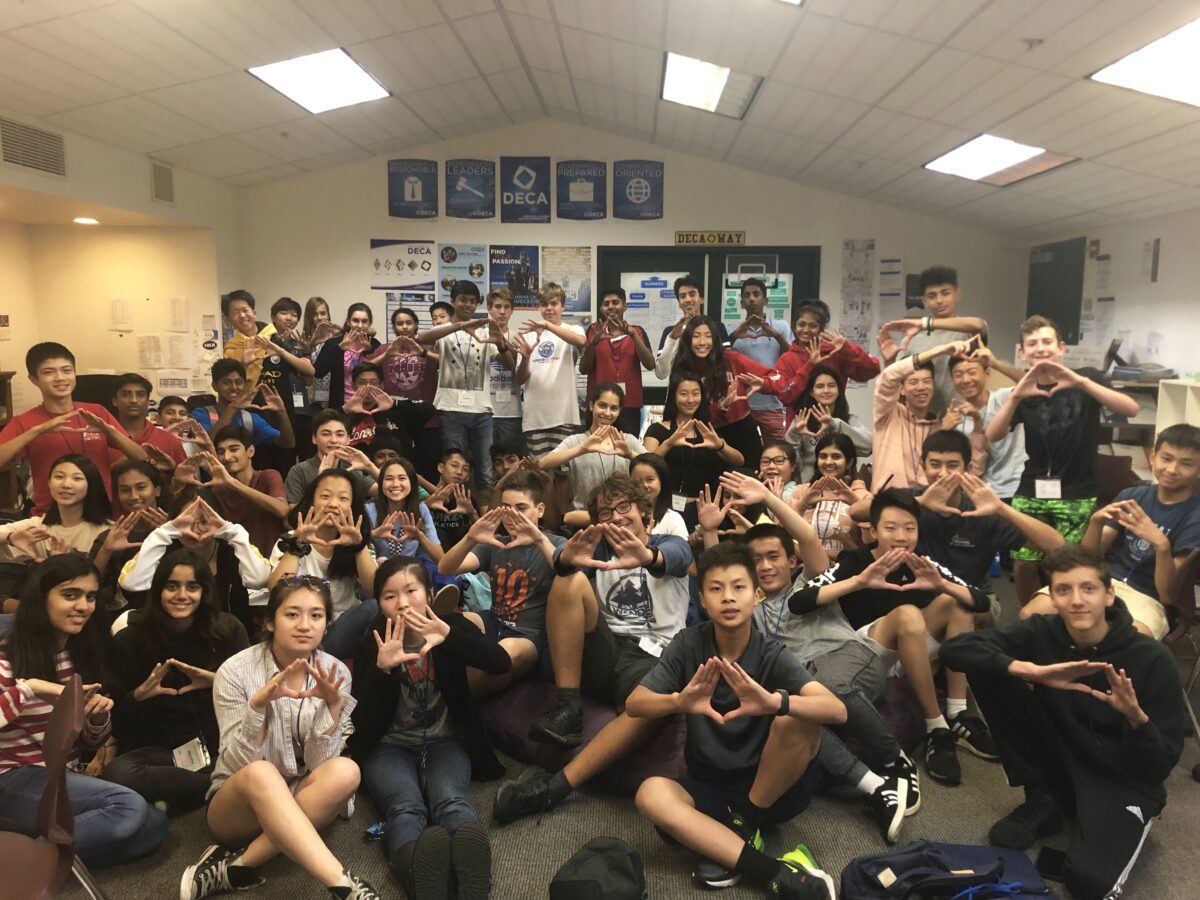In mid-January, CareerConnect held a workshop on interview tips and mock interviews.
Student Life Upper School
Harker’s DECA chapter attends Silicon Valley Career Development Conference
In mid-January, more than 110 students from Harker’s DECA chapter attended the 2020 Silicon Valley Career Development Conference (SVCDC) at the Santa Clara Marriott.
Spotlight on the Crew: A look behind the scenes at technical theater
As a discipline, technical theater comprises a massive range of theatrical aspects essential for a successful show. Read all about Harker’s tech theater program in this Harker Magazine article.
Entrepreneurship and beyond: Skills learned in incubator classes guide startup development and pay off in life
Harker’s incubator program, after one full year, has turned out some solid successes. Now, starting year two, the benefits to students – far beyond money – are becoming apparent.
DECA chapter takes on Fall Leadership Development Conference
Over 50 students traveled to Anaheim for California DECA’s first Fall Leadership Development Conference (FLDC) in early November, giving new members a closer look at three DECA industry clusters in a noncompetitive environment.
Eighth grader has phenomenal results in varsity debate tournament
Krish Mysoor, grade 8, placed first at the Damus Hollywood Invitational Tournament, the only eighth grader in memory to take first place at a varsity national qualifier to the Tournament of Champions.
Students attend constellation research conference
As part of the business and entrepreneurship department’s CareerConnect program, and thanks to the generous support of the Constellation Research organization, four upper school Harker students attended the annual Constellation Research Conference on Tuesday at the Ritz-Carlton in Half Moon Bay.
